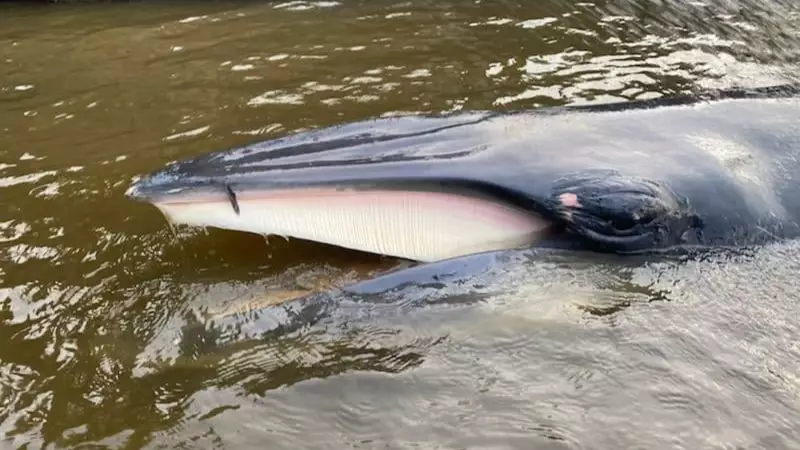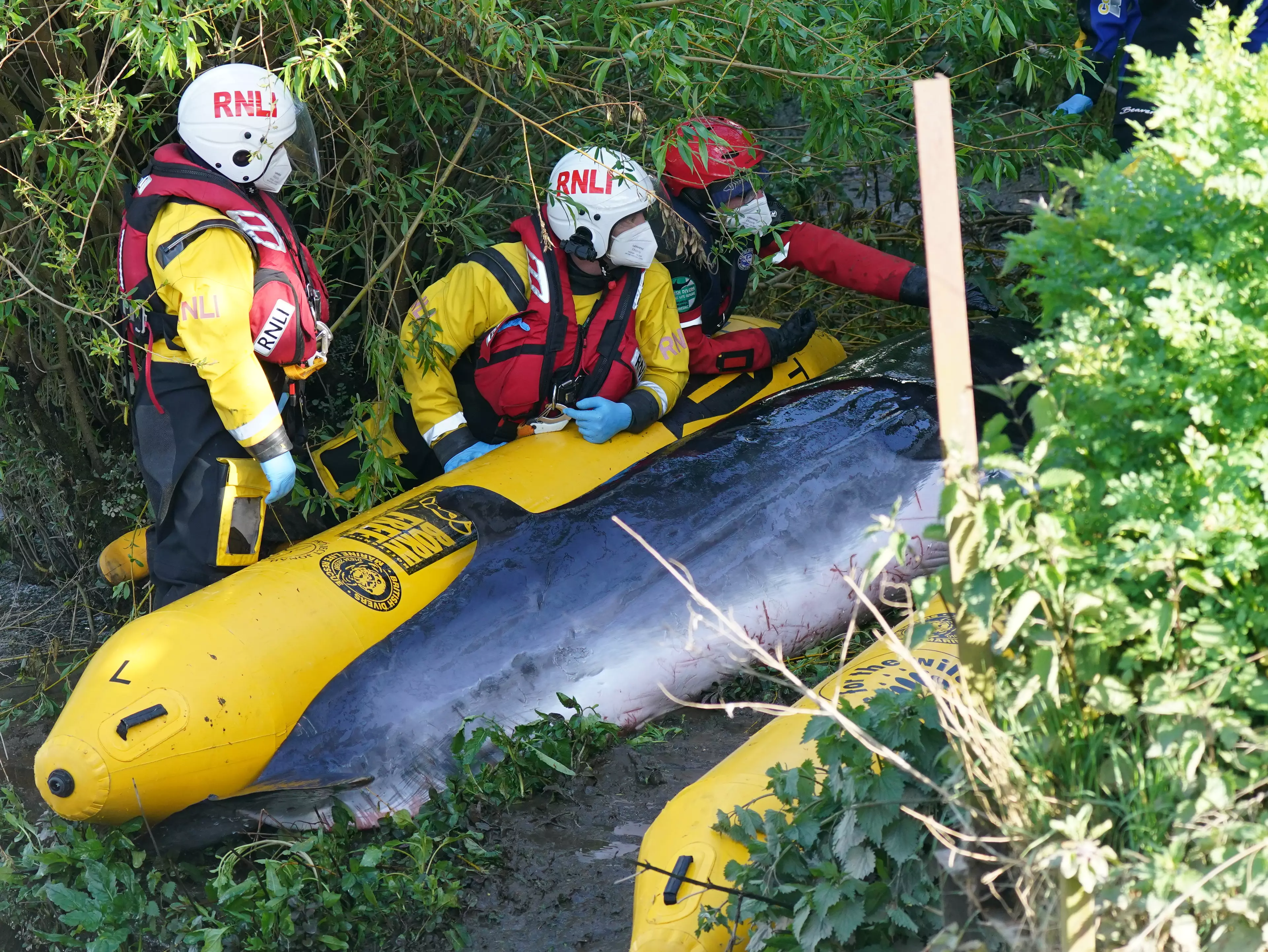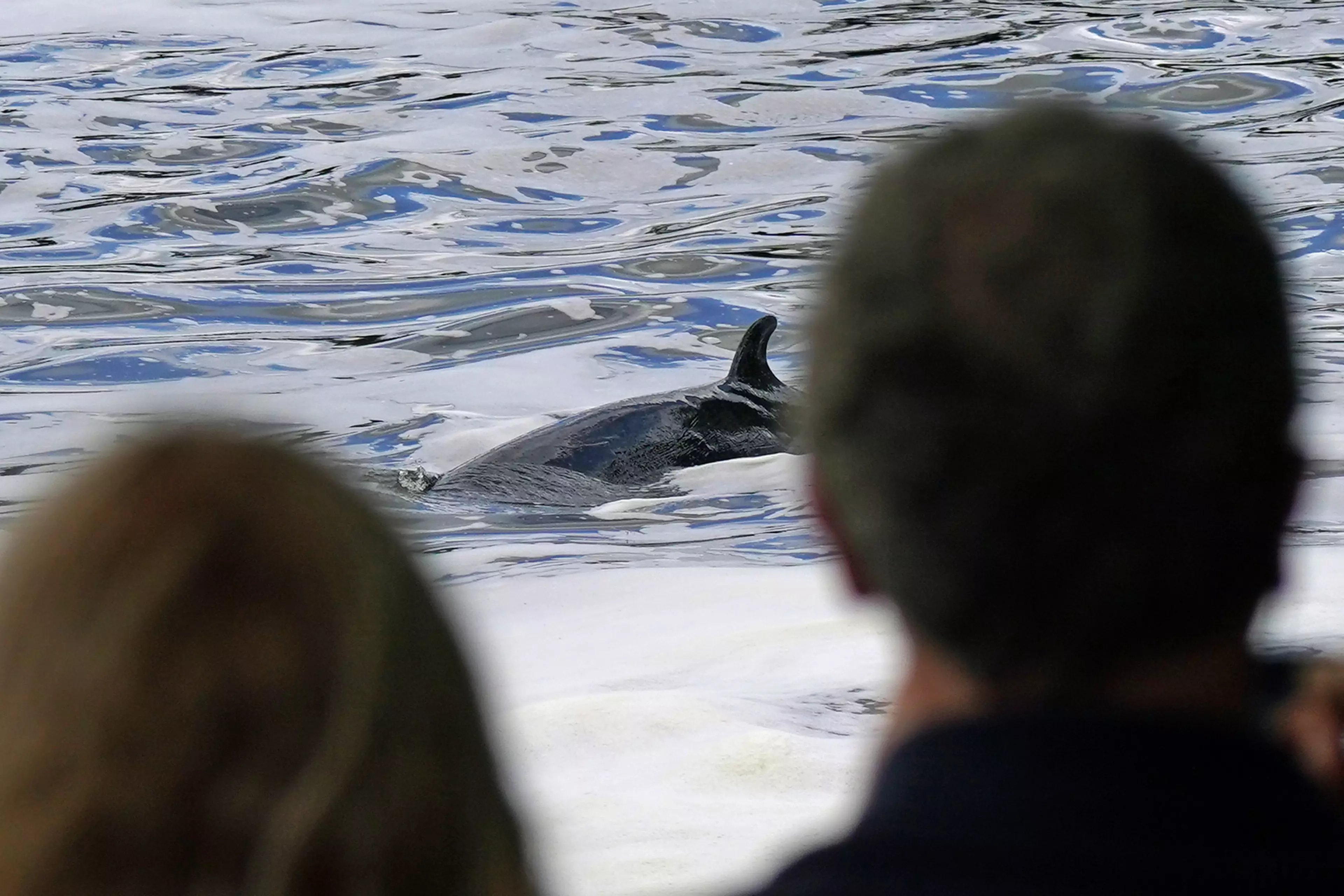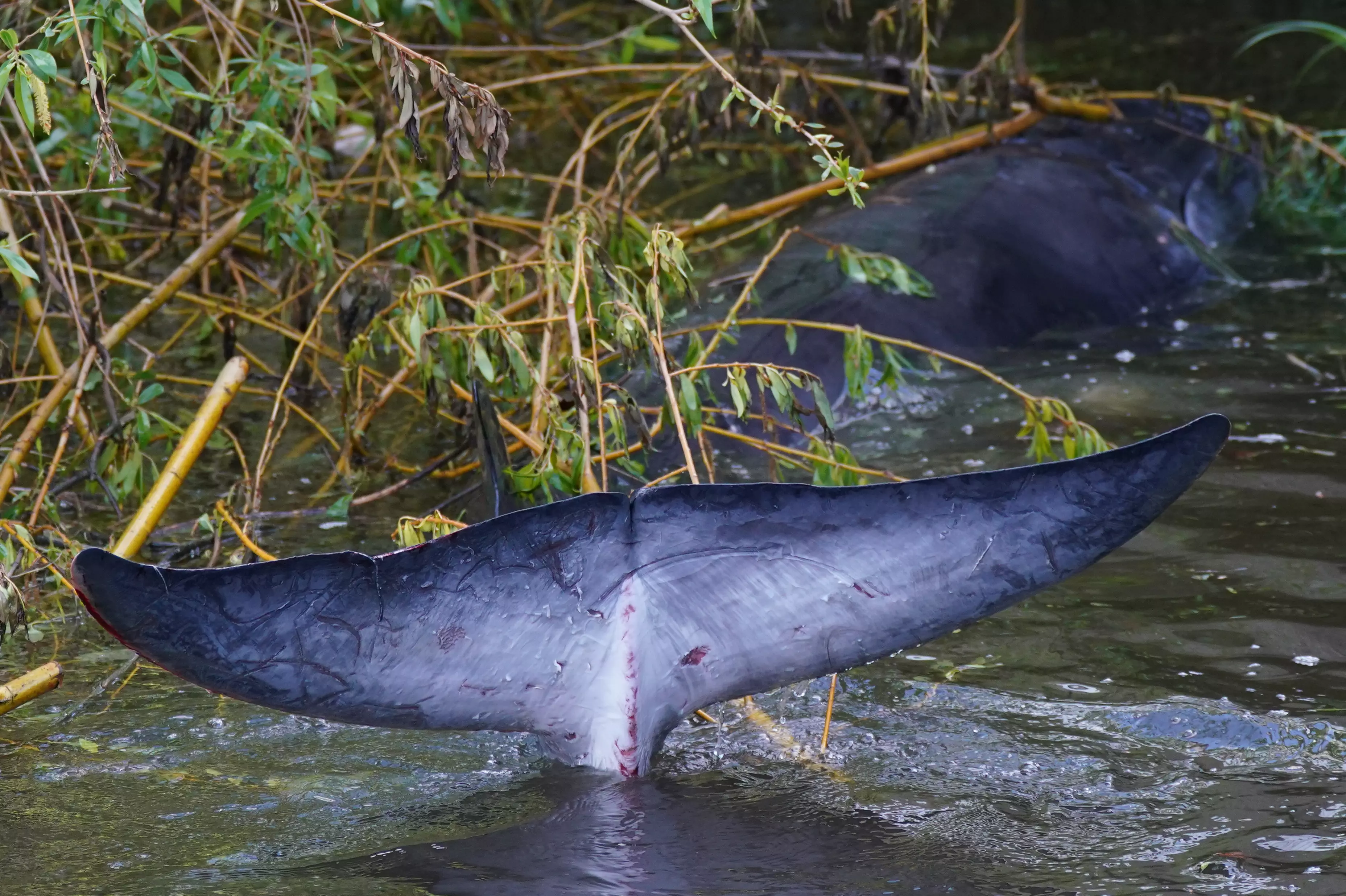
A baby whale stranded in the River Thames will have to be put to sleep to 'end its suffering' rescuers have said.
The juvenile minke whale was seen swimming under Barnes Bridge in West London yesterday afternoon (Sunday 9 May).
According to the British Divers Marine Life Rescue service (BDMLR), later that evening it was found further up river in Richmond Lock, where it was 'stranded in shallow water', before it was resighted in Teddington Lock this morning.
Advert
The BDMLR has now said a decision has been taken to 'euthanise' the whale, as its condition has deteriorated.
A statement said: "The juvenile minke whale in the River Thames at Teddington Weir has deteriorated rapidly over the last couple of hours of monitoring by BDMLR Medics and representatives from Cetacean Strandings Investigation Programme, based at the Zoological Society of London.


"The animal is positioned against the river wall and the tide is now dropping quickly and it is expected the animal will be beached very soon.
Advert
"BDMLR medics will try to position themselves to prevent the whale entering deep water again where it is now having difficulty swimming as its strength reserves seem to be compromised.
"Once the whale is beached a veterinary team will be on stand by to euthanise the animal to end its suffering, in the meantime the team will continue to do what they can to care for the animal under these sad circumstances."
Julia Cable, National Coordinator for the BDMLR, said the animal will be given a 'large anaesthetic dose' by vets, and that it should not feel a thing.
She said: "The vets are here from London Zoo. They will give the whale a large anaesthetic dose which will put it to sleep. It's as straight forward as that.


"The vets explained to me they will inject it near the liver and the anaesthetic will slowly go through the system. I can't tell you how long that will be.
Advert
"The whale shouldn't feel anything. They are just putting it to sleep."
She added that the whale was 'nutritionally in a poor state', had run out of energy and would be 'dehydrated and starved'.
"It's been separated from its mother or a group and will definitely be socially dependant," she explained.
"We tend to see one whale per year in The Thames. It's not that common and hopefully it won't be.
Advert
"It's come in from the Thames Estuary. For a whale to come this far up and not be seen until it was in the Hammersmith area is unusual."
Featured Image Credit: Port of London Authority